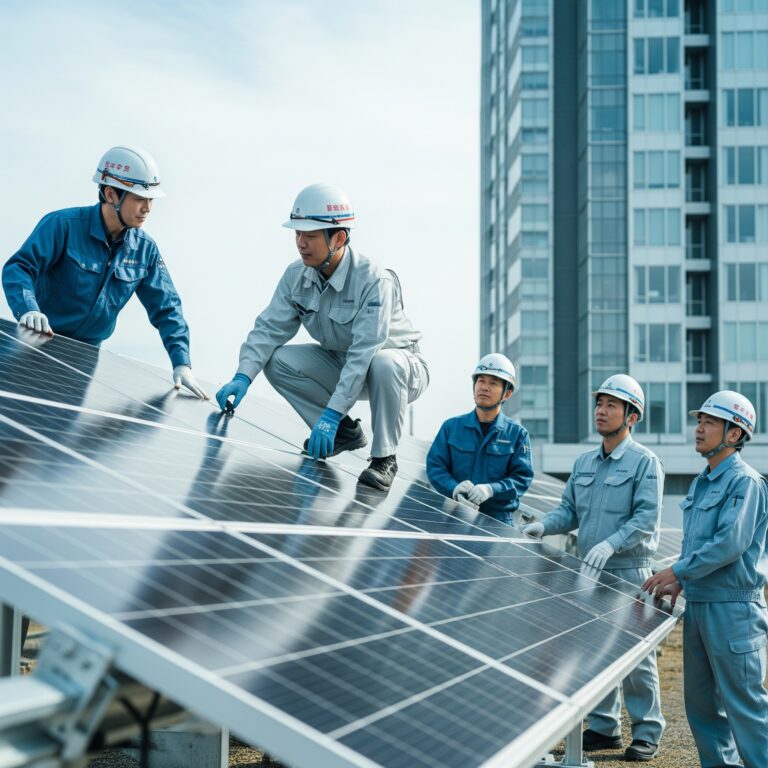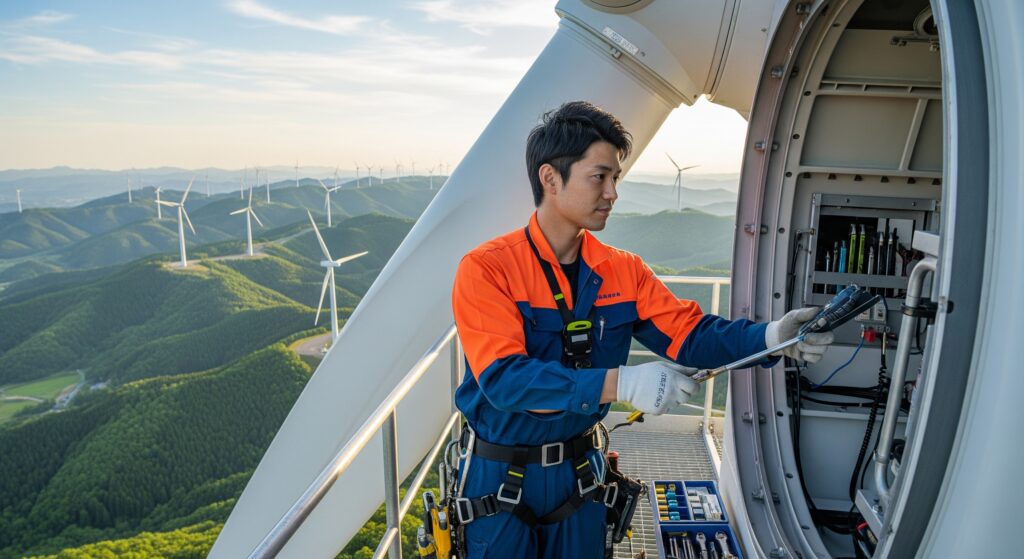
Following the return of Donald Trump to the White House and his predictable actions to roll back clean energy initiatives, we’re constantly asked how we see this impacting Japan and its energy sector’s labour market.
Naturally, when commenting on the future, a certain amount of speculation is necessary. Various moving parts in state policy, investor appetite, and existing partnerships can shift the trajectory of change. That disclaimer aside, overall we see a multitude of factors pointing to a continued increase and further diversification of career opportunities across Japan’s energy industry.
Japan is an energy consumer
Unlike the U,S., with abundant oil & gas reserves and economic opportunity to export these commodities, Japan is a consumer rather than producer of fossil fuels, therefore the same decisions the U.S. makes cannot support Japan to achieve the energy trilemma of secure, cost-effective and sustainable energy.
As Japan still imports over 80% of its primary energy, and has an electricity sector that remains at under 30% penetration of renewables – and barely 40% with renewables and nuclear combined – the demand for non-fossil resources will remain high from an energy independence and security perspective.
LNG is expected to have a new lease on life. Considering the close U.S./ Japan ties, and Japan’s role as a regional LNG trader, this seems inevitable. Japan’s gas utilities, trading houses and other fossil players see an opportunity to improve ties thanks to U.S. production, investments in infrastructure, and increased shipping capacity and volumes – both procured and traded.
Opportunities in clean fuel
With the potential rollback of the IRA in the U.S., many large-scale projects for green hydrogen and ammonia, as well as e-methane, sustainable aviation fuel and other next-generation fuels are facing potentially terminal economic difficulties.
Japan however, remains heavily invested in the ‘hydrogen economy’. Though clean hydrogen will not solve all of Japan’s energy security challenges, as much of the fuel will still need to be imported, industry has huge potential to become a global leader and reignite technology exporting opportunities. Since Japan lost the photovoltaic and battery markets to China, and the domestic wind turbine industry never got off the ground, the focus and pressure from Japan’s industry giants to regain export market share is not to be underestimated.
With Japan invested in the technology and the U.S. dropping projects, this opens the door for increased partnerships from other partners capable of producing clean hydrogen or ammonia at scale. We expect to see a shift in resources from Japanese investors and trading houses away from the U.S. to Australia, Middle East and potentially as far abroad as Canada.
In parallel to this shift in allocation of capital and partnerships, further market entry and investment from private companies into Japan is expected. From an Australian perspective, North Asia is a massive offtake opportunity for commodities. Japan with its stable political landscape and existing infrastructure developed to serve the LNG value chain stands out as the prime candidate to be a regional hub.
The trickle down effect on jobs here is significant. Development, project management, construction, and engineering talent will be required to repurpose or build new port, storage and transportation facilities. Investment and business development professionals will be required both for outbound investment and leading multinational interests in Japan.

Shift in alternative investment funds
The U.S. saw declining investment dollars into clean energy projects in the leadup to the election, and this has accelerated since the result. Europe has seen steady growth, but Asia has seen the biggest uptick in private investment into clean energy over the past 12 months.
Emerging markets in South East Asia attract risk capital, but Japan, despite having lower potential returns, is attracting investment as fund managers look to hedge risks and diversify their portfolios. This is backed up by an increasingly healthy PPA market and opportunities in energy storage. Ares Management’s acquisition of GLP Capital Partners and General Atlantic’s acquisition of Actis are among the examples of diversification and outflows of U.S. capital. We also see direct investments from U.S. platforms such as I Squared Capital, Stonepeak and others coming to Japan.
Though this trend was naturally motivated due to an increase in clean energy demand and the proliferation of energy storage in Japan, we now see changes in the U.S. accelerating it. Opportunities across all key functions of developers – project development, engineering, asset management, investment, procurement etc – are directly increasing. With energy storage in particular, this has second order effects of increasing opportunities for other players in the ecosystem, such as forecasting and optimization solution providers and energy traders.
Chance to double down on GX innovation?
Possibly the biggest loser of the U.S. policy changes will be clean tech companies. Without support for their R&D, manufacturing and other heavy capital investments, the U.S. could hemorrhage up to $50 billion of export revenue due to failed innovation and manufacturing in clean tech sectors, according to Net Zero Industrial Policy Lab.
This naturally creates opportunities elsewhere, and in multiple areas Japan stands to take advantage. Perovskites, next generation battery technologies, floating wind and turbines capable of burning 100% hydrogen are a few examples.
Since PM Suga’s initial Green Innovation Fund, Japan’s political leadership has continued to support innovation across green transformation sectors. And if they double down on this, we will see further opportunities across various areas of R&D and manufacturing.
From a decarbonisation perspective, Japan will not be free of negative effects from the change in the U.S. administration. The clearest illustration will be an almost certain prolonging and increase of Japan’s role as a purveyor of LNG at a regional level.
Looking more broadly though, new opportunities exist in wider partnerships, innovation, export markets and inbound investment into Japanese clean energy infrastructure.
Andrew Statter is a Partner at Titan GreenTech, an executive recruitment agency focused on the clean energy space.
